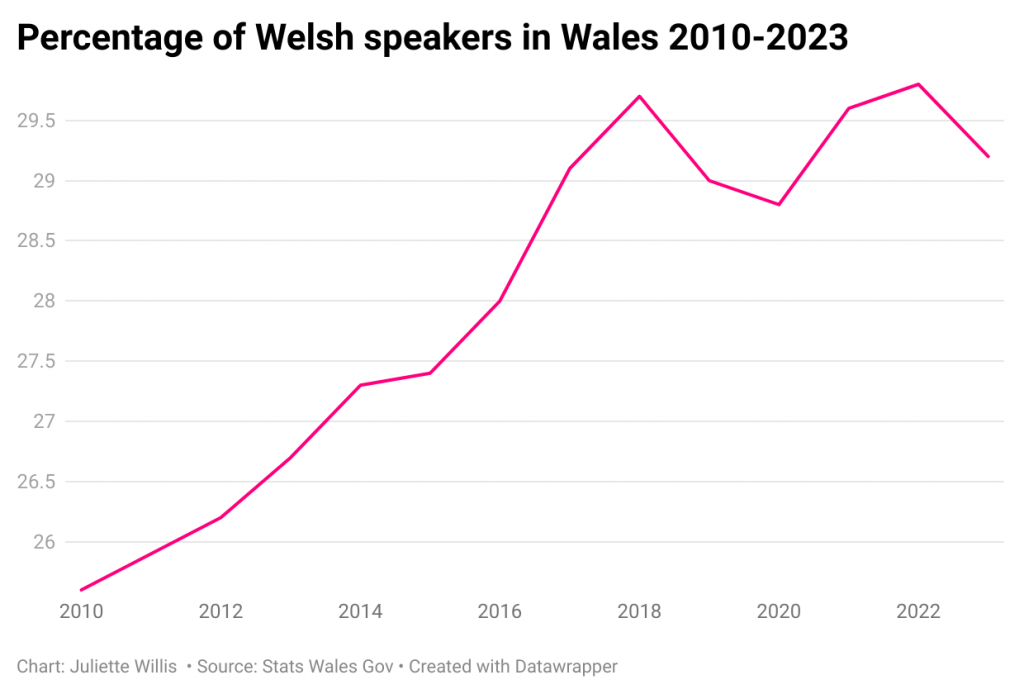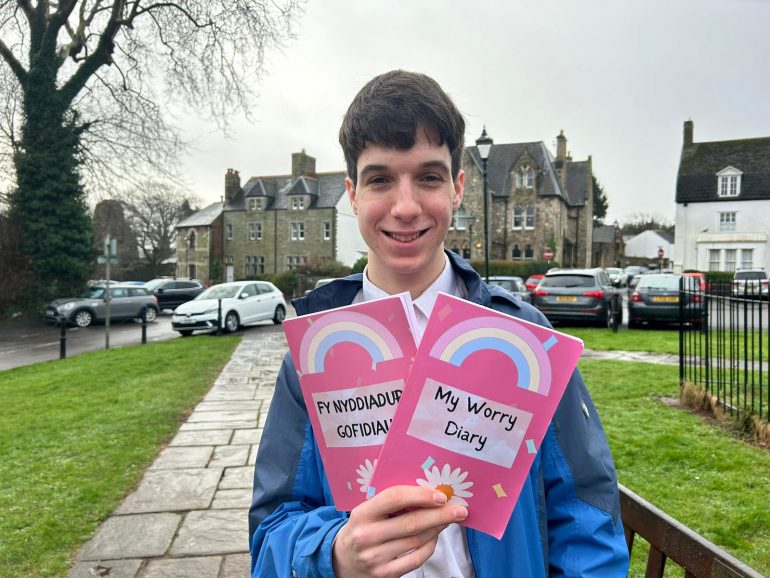A teenager from Cardiff is set to publish a first-of-its-kind Welsh ‘Worry Diary’ to help people struggling with mental health problems.
Gwilym Morgan wants to help children his age who live with conditions like anxiety or depression to write down their feelings in the language most comfortable to them.
He said: “It is much more effective if you write your worries and anxieties in your mother tongue rather than having to translate them into a different language because it adds another step to the process, it makes it more complicated.”
Gwilym originally wrote the diary for his little sister who was struggling with anxiety after his mother could not find any suitable journals online.
He plans to translate this book into Welsh so that he can help more people write in their first language.
Rhys Yaxley, a psychotherapeutic counsellor said: “In therapy, what we try to do is put a name to experience, a name to a feeling,
“Someone whose first language is Welsh, or their first language is predominantly Welsh, they may have to think to translate something into English, so it’s like an extra barrier.”
Welsh, however, is not Gwilym’s first language and has taught himself the language in the last five years. He won the Eisteddfod yr Urdd’s Welsh Learner’s Award last year in recognition of this.
Data published on Thursday by the Welsh Government showed a decline in Welsh speakers living in Wales between 2022-2023.

The Welsh Government wants to have one million speakers by 2050 – through its strategy ‘Cymraeg 2050’.
Gwilym also plans to translate the book into other languages such as Breton and Gaelic. He said: “There’s such a small percentage of people who use these languages, probably just because the services to use them aren’t there, so if the services are there to use them, hopefully they’ll stay alive a bit longer”.
The Government has also launched a five-year plan between 2022-27 called ‘More Than Just Words’ which plans to “strengthen Welsh language provision in health and social care”.
It said receiving services through the medium of Welsh is a “key component of care, especially when discussing sensitive and emotional concerns.”
The Deputy Minister for Mental Health, Lynne Neagle MS, said services should be “actively offered in Welsh”. She said: “It is vital that mental health care through the medium of Welsh is actively offered… after all in mental health, speaking one’s own language is part of the therapy”.
Mind Cymru has also launched ‘Information you need, in the language you speak’, a new campaign to encourage Welsh speakers to reach out.
This comes after its data revealed ‘last year more than half a million people visited Mind Cymru’s online support resources – with around one in 10 seeking information and advice in Welsh”.
Gwilym’s Welsh ‘My Worry Diary’ is set to be published soon.
If you were affected by anything in this article, help and support is available via the NHS and Samaritans on 116 123.

